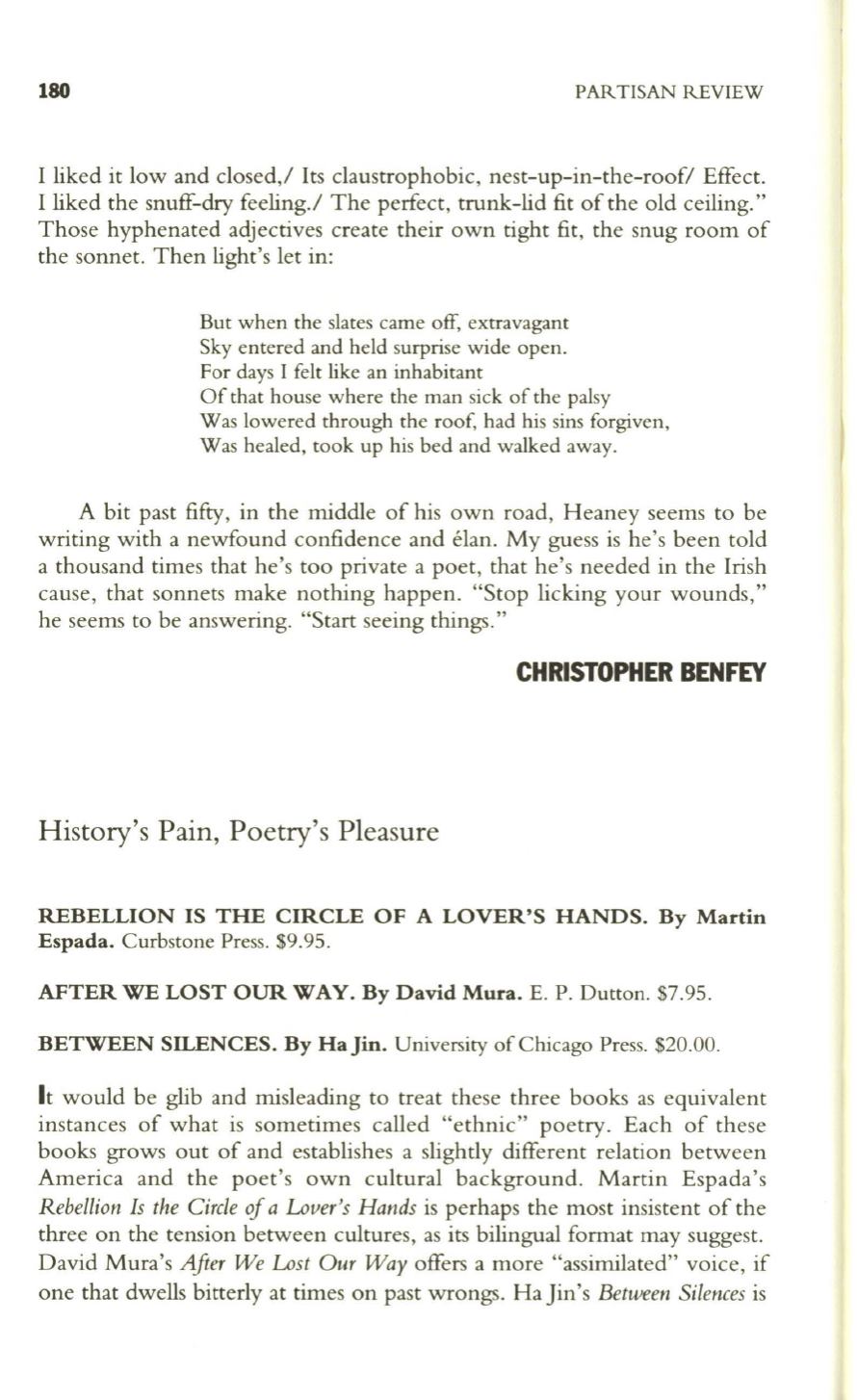
180
PARTISAN REVIEW
I liked it low and closed,/ Its claustrophobic, nest-up-in-the-roof/ Effect.
I liked the snuff-dry feeling./ The perfect, trunk-lid fit of the old ceiling."
Those hyphenated adjectives create their own tight fit, the snug room of
the sonnet. Then light's let in:
But when the slates came off, extravagant
Sky entered and held surprise wide open.
For days I felt like an inhabitant
Of that house where the man sick of the palsy
Was lowered through the roof, had his sins forgiven ,
Was healed, took up his bed and walked away.
A bit past fifty, in the middle of his own road, Heaney seems to be
writing with a newfound confidence and elan. My guess is he's been told
a thousand times that he's too private a poet, that he's needed in the Irish
cause, that sonnets make nothing happen. "Stop licking your wounds,"
he seems to be answering. "Start seeing things."
CHRISTOPHER BENFEY
History's Pain, Poetry's Pleasure
REBELLION IS THE CIRCLE OF A LOVER'S HANDS. By Martin
Espada.
Curbstone Press. $9.95.
AFTER
WE
LOST OUR WAY. By David Mura.
E. P. Dutton. $7.95.
BETWEEN SILENCES. By HaJin.
University of Chicago Press. $20.00.
It would be glib and misleading to treat these three books as equivalent
instances of what is sometimes called "ethnic" poetry. Each of these
books grows out of and establishes a slightly different relation between
America and the poet's own cultural background. Martin Espada's
Rebellion Is the Circle
cif
a Lover's Hands
is perhaps the most insistent of the
three on the tension between cultures, as its bilingual format may suggest.
David Mura's
After We Lost Our Way
offers a more "assimilated" voice, if
one that dwells bitterly at times on past wrongs. Ha ]in's
Between Silences
is


